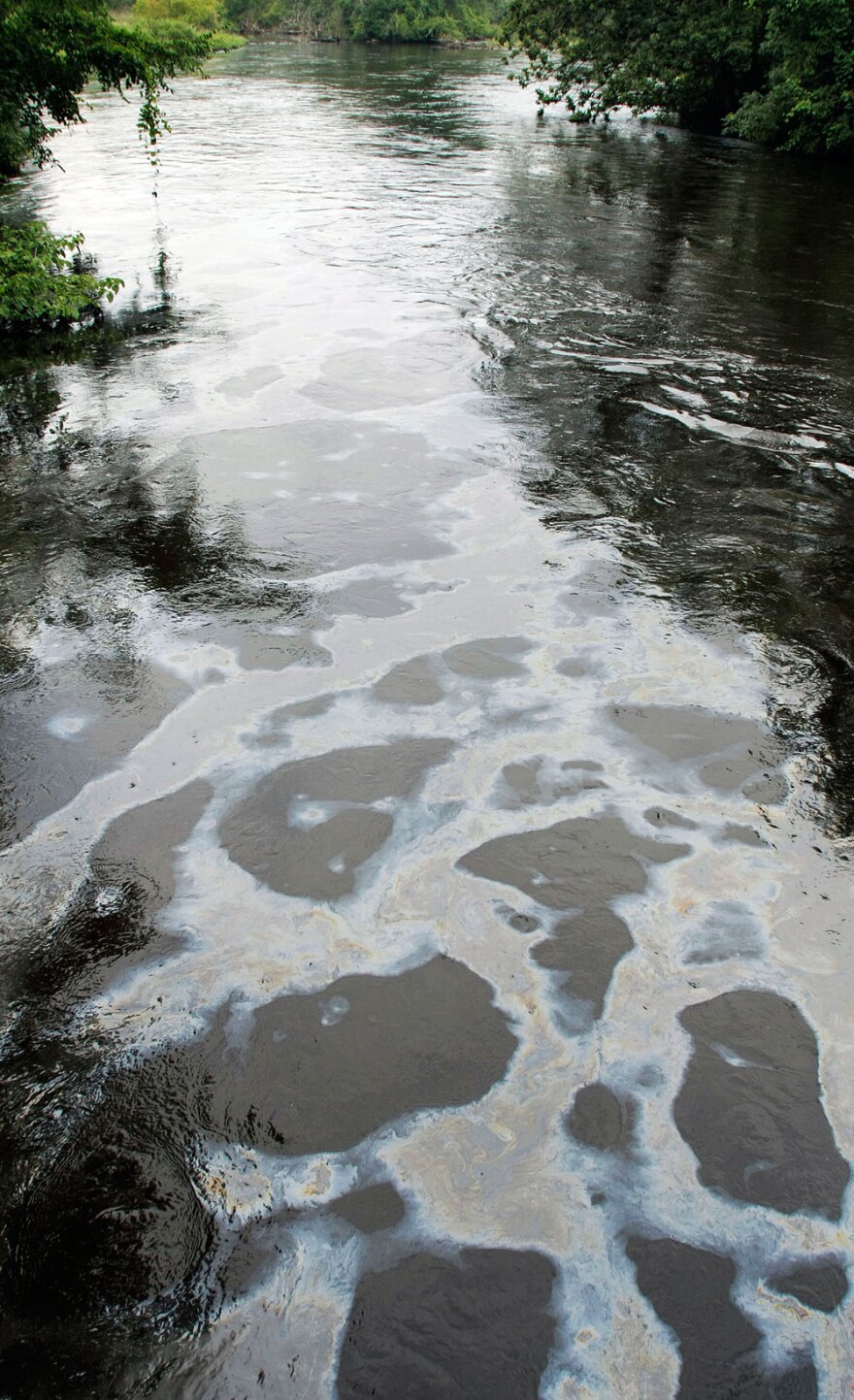Every week seems to bring fresh news about a disastrous oil spill. But the question is whether more such spills are taking place -- or whether news outlets are simply paying more attention to them in the wake of the record-breaking spill in the Gulf of Mexico.

It's not just the recent spills in Michigan and China, or the fear in such places as Turkey that disaster could strike there. Media outlets are suddenly giving more play to problems in areas where spills have long been a part of doing business, such as Alaska and Nigeria.
"There are spills that have been happening for years and years in those places that hadn't gotten a lot of press attention," says Michael Klare, a professor of peace and world security studies at Hampshire College and author of several books about energy. "The press has become more keen in looking at spills."
Environmental groups and the oil industry agree that increased sensitivity after the Gulf spill is drawing more attention to the major spills that are happening.
But according to industry data, the number of oil spills has dropped in recent decades.
Different interest groups disagree about whether the number of spills are bound to increase in the future. Klare, among others, argues that because oil companies are now exploring and producing oil in more environmentally fragile areas, a spike in damaging spills is inevitable.
"The difficulty in producing and transporting oil, which comes with its increasing scarcity, presents engineering challenges," says Ian MacDonald, an oceanographer at Florida State University. "We have to go to deeper, more dangerous reservoirs to get the oil."
Start Paying Attention
Call it the Volvo syndrome. You decide you're interested in buying a Volvo and suddenly you start noticing that people are driving Volvos all over the place. There may have always been plenty of Volvos out on the road, but if you've never had reason to pay attention to them you might not have noticed them.
It's the same, to some extent, with oil spills. Spills over the past month in places such as the Yellow Sea and the Kalamazoo River may have gotten more attention than they would have otherwise due to increased sensitivity following the BP Deepwater Horizon disaster, which began with a drilling rig's Aug. 20 explosion and fire.
"The fact is, oil spills are common and have been common," says Jackie Savitz, senior campaign director with Oceana, a conservation group that opposes offshore drilling. "Every time we testify before Congress, we're able to say 'there were three oil spills last week.'"
Widely cited figures from the International Tanker Owners Pollution Federation show that the number of spills has gone down markedly in recent decades. During the 1970s, there were more than 25 tanker spills measuring seven tons or greater each year. But during the past decade, the number dropped to just over three annually.
The American Petroleum Institute also reports that the number of spills has been falling, thanks to enhanced safety precautions and procedures.
"Prior to the spill in the Gulf of Mexico, we confidently reported that the record was better than it had been historically," says Allison Nyholm, an API policy advisor. "We had gotten better at managing what we do, identifying potential issues before they happen."
Raising The Risk?
MacDonald, the Florida State oceanographer, agrees that oil companies take an approach to safety that "is just this side of born-again, revivalist meetings." Oil companies have no interest in losing oil to spills, or in paying fines and higher insurance costs. Workers on rigs, MacDonald says, are constantly exhorted to think about safety in everything they do, up to and including their drives home -- though there have been some allegations, including from an electronics technician who worked for the company that owned the rig that exploded in the Gulf, that an alarm system was partly shut down aboard the facility.
And even if safety is stressed, the oil industry is engaging in an increasingly risky business. For the past 15 years, oil companies have been drilling in much deeper waters, as was of course the case with the BP spill. Oil companies are also extracting dirtier, more sulfuric oil from places like the Alberta oil sands that have to be transported over long distances, which can lead to problems such as the ruptured pipeline in Michigan.

"Production is moving from on shore to offshore," says journalist Michael Klare, "and that raises the risk."
What Makes A Story Worthwhile
Regardless of whether Klare and environmental groups are correct in their assertion that an increased likelihood of spills will naturally grow out of more hazardous production and transportation, the reality is that spills have always been part and parcel with oil extraction.
The media are paying more attention to them now, suggests Robert Thompson, a media studies professor at Syracuse University, because the Gulf spill has opened them up as a "genre" worthy of attention and resources.
"Clearly, once we have this big Gulf disaster, then people start paying attention to all these other, smaller oil spills," Thompson says. "When you have one of these big stories that gets everyone's attention, all the other stories that may have been ignored get a lot more coverage."
MacDonald suggests that the BP spill has received enormous amounts of attention not just because of its size and scope, but because of the sympathy elicited by the damage done to birds and marine animals, and to people all around the Gulf whose livelihoods have been disrupted.
In other words, you can't beat the human angle. "It has to do with the availability of media attention," MacDonald says. "If Michael Jackson died during the middle of Gulf spill, we would have shifted attention away from that."
Copyright 2023 NPR. To see more, visit https://www.npr.org. 9(MDM3NjYwMjA5MDE1MjA1MzQ1NDk1N2ZmZQ004))

